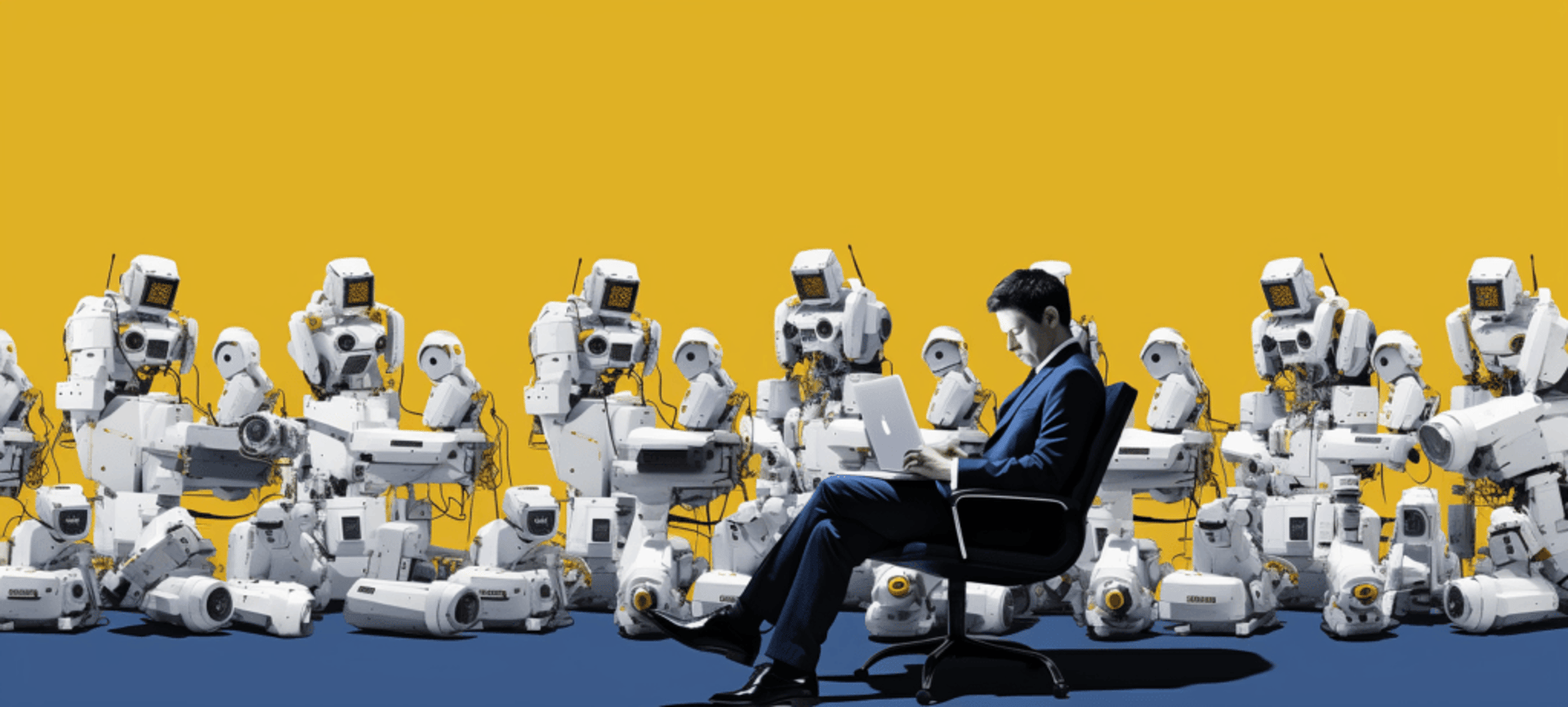How Businesses Can Use AI Effectively in 2024
When it comes to artificial intelligence in business, the benefits start when companies learn how to use AI effectively at the organizational level. With that kind of scale, businesses can see real change in their operations, from bigger marketing returns to higher close rates to better client satisfaction.
Mohammad Omer
1/1/20242 min read

When it comes to artificial intelligence in business, the benefits start when companies learn how to use AI effectively at the organizational level. With that kind of scale, businesses can see real change in their operations, from bigger marketing returns to higher close rates to better client satisfaction.
Looking to see that kind of growth at your organization? Then, keep reading to learn how businesses can use AI effectively in 2025 and understand the common concerns business leaders have about using artificial intelligence in the workplace.
What are the benefits of using AI in business?
Creating alignment between departments: Business areas, like marketing and sales, often operate separately. With artificial intelligence, companies can create a bridge between these departments for sharing data, aligning efforts, and more.
Streamlining tasks and saving time: Across industries, organizations can use AI to save time. Whether it’s automating meeting notes, candidate screening, or compliance checks, there are industry- and task-specific AI tools to help teams get their time back.
Examples of how businesses can use AI
Marketing: Personalization Personalization is more than [Company Name] with AI. With generative AI, marketing teams can create messages, experiences, and offers that resonate with users and drive the desired action, like purchasing a product.
Sales: Lead scoring models Timing is everything — especially for sales teams. When sales teams can prioritize their time and reach out to the right lead at the right moment, it can have a tremendous impact on the organization and its bottom line.
Customer support: Chatbots Chatbots have become vital support team members, whether providing pre-determined responses to common questions or gathering initial information before routing a customer to a team member. AI, however, has changed what chatbots can do for businesses.
Operations: Predictive analytics With the power to predict internal and customer needs, organizations can optimize their costs and time. In this example of how businesses can use AI, the Government of Jersey used IBM’s AI solutions to predict equipment maintenance and inventory needs to serve its residents better.
Accounting: Fraud detection Fraud detection is critical for financial institutions — especially as more transactions occur online. That’s why FinSecure Bank adopted an AI-powered fraud detection system, which reduced fraudulent activities by 60%.
Recruiting: Resume screening The volume of applications vs. the number of recruiters can halt an organization’s hiring efforts. For a U.S.-based professional services firm, this was the case. The company received thousands of applications for government roles that required high-security clearances.
Supply chain: Inventory management With better inventory management, businesses can optimize costs, space, and more. In this example of how businesses can use AI, Walmart used an AI-powered inventory management system to help the company deliver what users needed (and when they needed it) during the holiday season. While Walmart hasn’t shared specific results from using this platform, it has emphasized how it can predict future needs based on the weather, local demographics, and economic trends for its physical and online stores.
Contact us
Whether you have a request, a query, or want to work with us, use the form below to get in touch with our team.




Join The Newsletter
Sign up for our newsletter to get the latest from Hot Leads Agency.
©2024 Hot Leads Agency. All Rights Reserved. Privacy Policy and Terms of Service.










